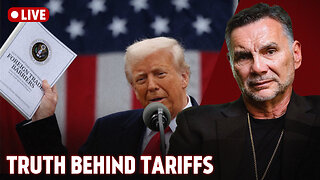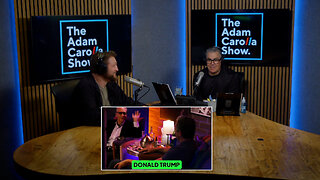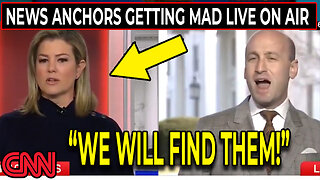Premium Only Content

Sanctioned Ethnic Cleansing.
Sanctions
The Security Council can take action to maintain or restore international peace and security under Chapter VII of the United Nations Charter. Sanctions measures, under Article 41, encompass a broad range of enforcement options that do not involve the use of armed force. Since 1966, the Security Council has established 31 sanctions regimes, in Southern Rhodesia, South Africa, the Former Yugoslavia (2), Haiti (2), Angola, Liberia (3), Eritrea/Ethiopia, Rwanda, Sierra Leone, Côte d’Ivoire, Iran, Somalia/Eritrea, ISIL (Da’esh) and Al-Qaida, Iraq (2), Democratic Republic of the Congo, Sudan, Lebanon, Democratic People’s Republic of Korea, Libya (2), the Taliban, Guinea-Bissau, Central African Republic, Yemen, South Sudan and Mali.
Security Council sanctions have taken a number of different forms, in pursuit of a variety of goals. The measures have ranged from comprehensive economic and trade sanctions to more targeted measures such as arms embargoes, travel bans, and financial or commodity restrictions. The Security Council has applied sanctions to support peaceful transitions, deter non-constitutional changes, constrain terrorism, protect human rights and promote non-proliferation.
Sanctions do not operate, succeed or fail in a vacuum. The measures are most effective at maintaining or restoring international peace and security when applied as part of a comprehensive strategy encompassing peacekeeping, peacebuilding and peacemaking. Contrary to the assumption that sanctions are punitive, many regimes are designed to support governments and regions working towards peaceful transition. The Libyan and Guinea-Bissau sanctions regimes all exemplify this approach.
Today, there are 15 ongoing sanctions regimes which focus on supporting political settlement of conflicts, nuclear non-proliferation, and counter-terrorism. Each regime is administered by a sanctions committee chaired by a non-permanent member of the Security Council. There are 11 monitoring groups, teams and panels that support the work of 12 of the 15 sanctions committees.
The Council applies sanctions with ever-increasing cognisance of the rights of those targeted. In the 2005 World Summit declaration, the General Assembly called on the Security Council, with the support of the Secretary-General, to ensure that fair and clear procedures are in place for the imposition and lifting of sanctions measures. The establishment of a focal point for de-listing, and the Office of the Ombudsperson to the ISIL (Da'esh) & Al-Qaida Sanctions Committee are examples of this approach in practice.
-
 1:34:25
1:34:25
Michael Franzese
17 hours agoThey Blame Trump for Everything - But Who’s Really Wrecking the Economy?
32.7K47 -
 1:43:55
1:43:55
I_Came_With_Fire_Podcast
12 hours agoThe REVOLUTION to SAVE AMERICA Starts At HOME
31.9K8 -
 28:33
28:33
Mike Rowe
3 days agoWhy Are Healthy Men Exiting The Workforce? | Nick Eberstadt #274 | The Way I Heard It
29.5K186 -
 38:40
38:40
Adam Carolla
2 days ago $11.09 earnedBill Maher Calls Trump 'Effective'?! You won't see it coming! | Adam Carolla Show | #news
63.9K30 -
 14:40
14:40
Talk Nerdy Sports - The Ultimate Sports Betting Podcast
3 hours ago4/12/25 - Wake the F Up: It’s Saturday! It’s War!
20.7K -
 5:07
5:07
DEADBUGsays
1 day agoThe Murder of Janet Brown
22.6K3 -
 13:08
13:08
NinjaGamblers
1 day ago $0.82 earnedHow to Win at Roulette 99.98% of the Time with This Crazy Combo 🤯
17.2K -
 20:54
20:54
Chris From The 740
17 hours ago $1.06 earnedThird Time’s the Charm? Amend2 Mod3 Glock Mag Put to the Test!
21.3K4 -
 13:23
13:23
T-SPLY
1 day agoStephen Miller BLOWS UP On CNN For Questioning Deportations
102K291 -
 16:09
16:09
Clownfish TV
1 day agoSnow White Can't Even Break $100 Million?!
136K77